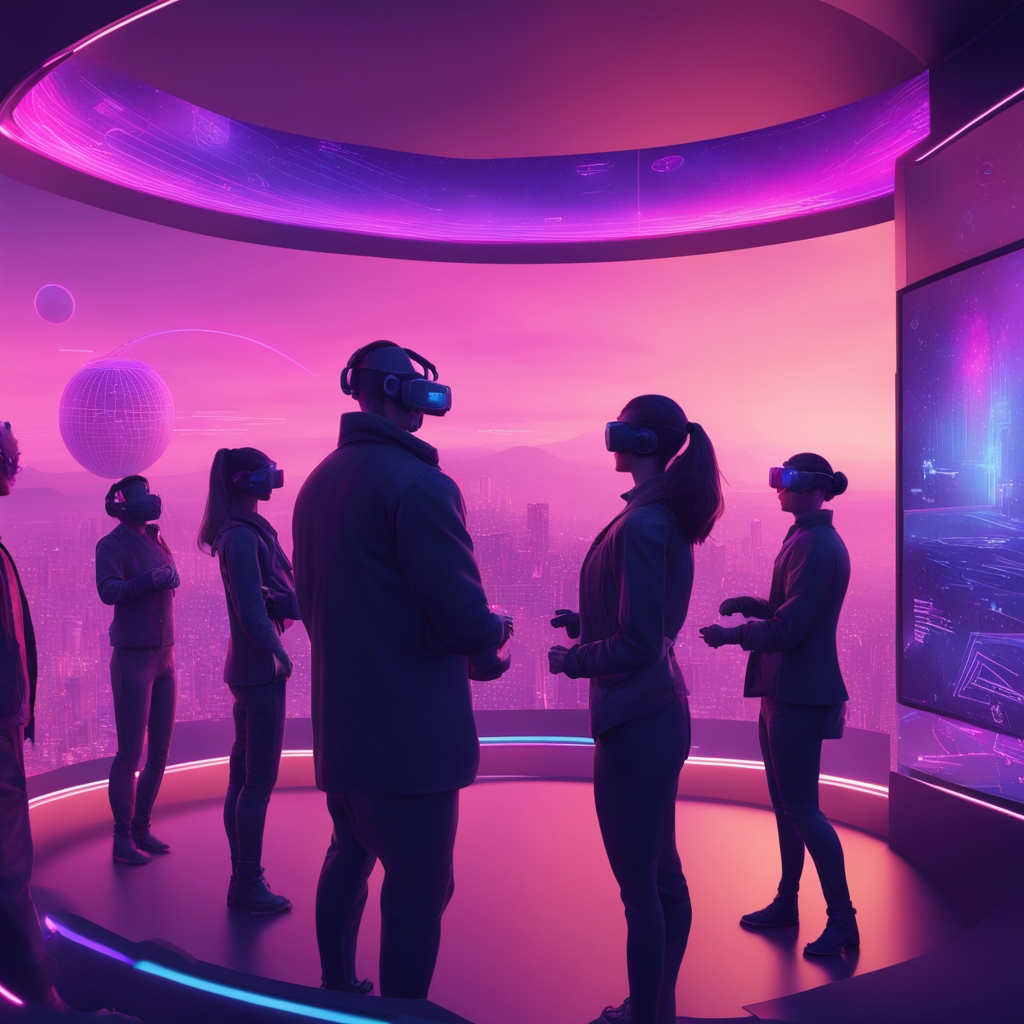Creating a brand experience in the metaverse opens up unique opportunities to engage audiences in innovative, immersive ways. For companies looking to build lasting connections with digitally-savvy consumers, the metaverse provides a dynamic platform to showcase brand identity, foster community, and deliver unforgettable interactions. Here are some compelling reasons why brands are investing in metaverse experiences:
Reach New Audiences in Digital-First Spaces
The metaverse allows brands to connect with Gen Z and Millennial audiences who often see virtual spaces as an extension of their social lives. These younger, digitally-native demographics are more likely to value experiences over traditional advertising. In the metaverse, brands can build genuine connections through interactive and immersive brand experiences, reaching consumers where they are spending more of their time.
For instance, brands like Nike, Gucci, and Wendy’s have created virtual experiences in platforms like Roblox and Fortnite to reach millions of engaged users in these digital-first spaces.
Enhance Brand Identity with Immersive Storytelling
The metaverse provides an open canvas for brands to create rich, story-driven experiences that go beyond what’s possible in the physical world. Companies can build entire branded worlds, design interactive product showcases, or create narrative-driven events that reflect their brand identity in engaging ways.
For instance, Coca-Cola’s virtual vending machine in Decentraland offered exclusive NFTs that told a story of nostalgia and innovation, capturing the brand’s heritage while engaging users in a modern digital space. This ability to bring storytelling to life immersively creates a more memorable and impactful brand experience.
Offer Unique Digital Products and Revenue Streams with NFTs
The metaverse enables brands to introduce digital assets, often through NFTs, that users can buy, trade, and display as status symbols or collectibles. Digital goods like branded clothing, accessories, and virtual real estate allow brands to extend their product lines into the virtual world, creating new revenue streams and appealing to consumers’ desire for customisation.
For instance, Gucci released virtual sneakers and accessories on Roblox, some of which were resold for more than the physical counterparts. These digital products not only bring in revenue but also deepen brand loyalty, as users are likely to value items that enhance their avatar’s identity in virtual spaces.
Create Interactive and Personalised Customer Experiences
The metaverse allows brands to interact with customers in ways that traditional media cannot—such as through virtual consultations, avatar customisation, and personalised brand spaces. By tailoring interactions to each user, brands can enhance customer satisfaction and loyalty, as the metaverse allows for highly customised, one-on-one engagement.
For example, beauty brands can offer virtual try-ons or consultations, while fashion brands can allow users to try digital clothes on avatars, offering a unique, personalised experience that brings the customer closer to the brand.
Host Virtual Events and Build Communities
Brands can host exclusive virtual events in the metaverse, from product launches to concerts, that drive engagement and community building. Events in the metaverse can attract millions of users at a time, providing an excellent opportunity to reach new audiences while reinforcing brand loyalty and community.
For example, when Travis Scott held a concert in Fortnite, it attracted 12 million players and was an effective way for brands to sponsor a shared, memorable experience. By hosting such events, brands can create excitement around their products and foster a sense of belonging within their user community.
Test New Products and Collect Real-Time Feedback
In the metaverse, brands can create simulations, product demos, or mock-ups and gauge user reactions in real time. This virtual focus group approach allows companies to test products or features without full-scale physical production, which saves time and resources. It also offers insights into customer preferences, helping brands to better tailor their offerings to user desires.
For instance, car brands can showcase new models virtually, allowing users to “test drive” and interact with features before making a purchase decision.
Gain First-Mover Advantage in an Emerging Digital Landscape
As the metaverse is still evolving, brands that establish a presence early can position themselves as digital innovators and capture the attention of future consumers before competitors enter the space. This first-mover advantage allows companies to shape the market and develop loyal communities as the metaverse matures.
Early adopters like Nike, Samsung, and Wendy’s are building foundational brand experiences that will likely pay dividends as the metaverse expands and attracts more users.
Conclusion: Why the Metaverse Matters for Brands
The metaverse represents an exciting opportunity for brands to connect with consumers in immersive, personalised ways that traditional media cannot match. By creating virtual brand experiences, companies can enhance brand identity, tap into new revenue streams, and foster community engagement. As the metaverse continues to evolve, brands that embrace these digital experiences early will likely have a head start in a new era of customer engagement, reaching audiences through innovative, unforgettable interactions.

